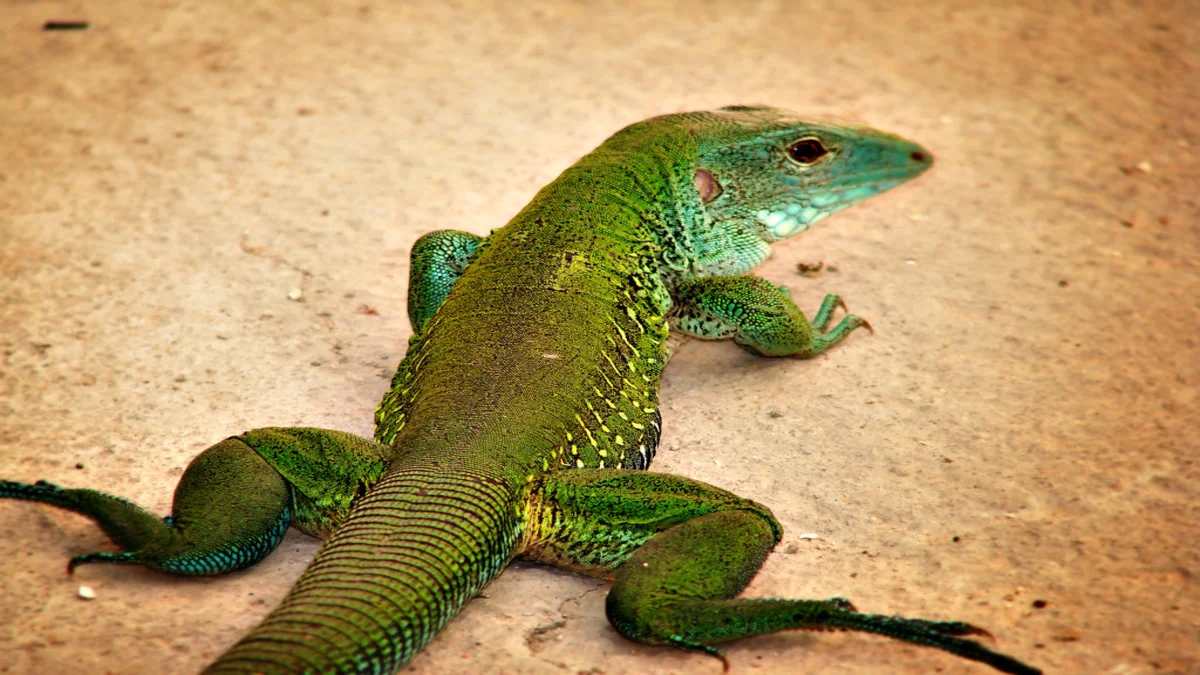
know the 5 domestic reptiles to have as a pet image: Flickr
Want to enter the world of exotic animals but don’t know where to start? Don’t worry, here are 5 reptiles that make great pets.
But before you go to the article join our telegram channel and stay up to date with everything about the world of pets, like care, curiosities and more. Click here!
The world of exotic animals is so fascinating. There are many species of reptiles and amphibians kept as pets, but not all of them adapt well to life in their new home. Furthermore, some of these animals are taken from their natural habitat for sale, which is unethical and harmful to the environment.
Next, we will show you 5 species of reptiles that can be easily kept as pets. Check out!
The leopard gecko is the perfect example of an exotic pet for beginners. It is an easy to care for animal, it is tame and fortunately it has been bred in specialized facilities for decades. Furthermore, many conspicuous morphotypes of this species were created due to genetic selection. Therefore, its diversity is quite impressive.
Native to the deserts of South Asia, this reptile requires a dry terrarium with a heat gradient. To mimic its natural environment, you can add a special substrate of calcium sand for reptiles and lots of hollow logs to act as shelter. It is necessary to place a thermal blanket under the terrarium to allow the reptile to have the sun exposure it wants.
Very similar and a direct relative of the leopard gecko, this gecko is another ideal pet reptile. This species is endemic to West Africa and distributed from Senegal to Cameroon, but prefers much wetter and darker environments.
There is one thing to note though: it needs a lot more moisture. For this reason, it is advisable to place in the terrarium a substrate made of coconut fiber, moss and natural plants, which guarantee a slightly more moderate climate without becoming tropical.
The gecko Correlophus ciliatus is a species native to New Caledonia, an archipelago in the Pacific Ocean. Although it has not been bred in its natural habitat for several years, it is important to note that this reptile is classified as Vulnerable (VU) in its natural environment. Therefore, acquiring specimens from the environment can be extremely harmful to biodiversity.
Unlike the other species mentioned, this one is decidedly arboreal and requires a tropical environment with live plants, branches and various hiding places to seek refuge. Although it is a nocturnal animal, it is also recommended to use ultraviolet light during the day to simulate the reptiles’ natural environment.
The bearded dragon is a species of sauropsid in the Agamidae family that entered the exotic animal hobby a long time ago. Despite very simple care, it should be borne in mind that an adult specimen of this species can reach a length of about 60 centimeters, therefore, to feel comfortable, it needs a very large installation.
In addition, this reptile has an extra difficulty in terms of care, as it needs a special UV light source to develop properly. In this case, a heat-emitting light should be placed in the terrarium instead of an electric blanket to create the hot spot on a rock.
Tiliqua gigas is a species of lizard in the Scincidae family, characterized by an elongated body and short limbs. Despite its size (about 60 centimeters), it is a very docile animal that can be handled without major problems. It is also extremely long-lived, as it can live up to 30 years with proper care.
This species is endemic to the island soils of New Guinea and should not be confused with its close relative, Tiliqua scincoides, which is found in Australia and requires a much drier environment than the reptile we present.
Welcoming a dog into your life is one of the most rewarding experiences. But along…
From cozy homes in the American suburbs to bustling urban cities, pets have a special…
To own an exotic pet is to immerse yourself in a unique world. Whether it's…
The unconditional love that our canine friends give us is truly unique. As responsible owners,…
Dogs, our loyal and loving companions, have a range of preferences and pleasures that contribute…
Introduction to the Pomeranian Breed The Pomeranian, often lovingly referred to as the "Pom," is…
This website uses cookies.